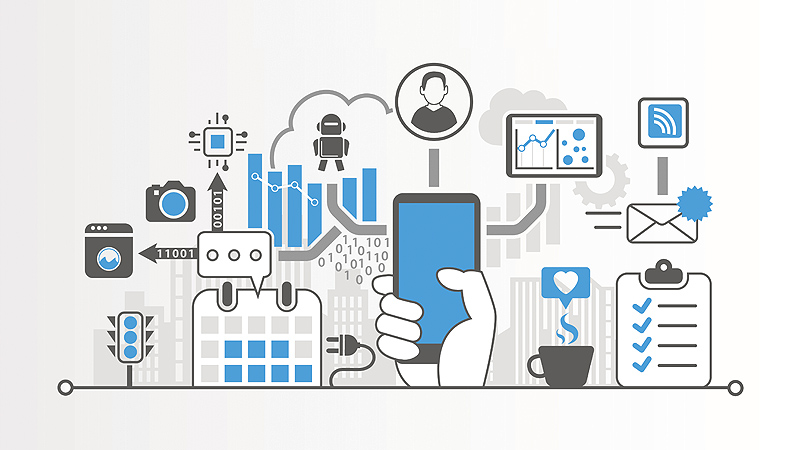SYDNEY, Australia, March 9, 2007 - A new mobile wireless system in the Emergency Department at The Children's Hospital at Westmead has produced dramatic improvements in staff productivity, potential cost savings and patient care, according to a study released today by the NTF Group.
The research, commissioned by Cisco® and its technology partners, indicates that since the establishment of the new voice-activated, hands-free communications over Internet Protocol (IP) technology, staff and patients at the hospital have experienced shorter waiting times and improvements in patient care and safety, which in turn have boosted staff satisfaction and productivity.
The Emergency Department sees 26,000 patients per year, and timely delivery of information to the relevant caregivers is vitally important.
Ralph Hanson, the director of information services at The Children's Hospital at Westmead, said: "Healthcare is moving away from paper-based records to electronic patient information, so we see mobile access to this critical data as the logical next step. This was a valuable opportunity for The Children's Hospital at Westmead to participate in a trial with industry-wide implications."
The independent study allowed for the first time in Australia a systematic, qualitative comparison to be conducted of communications efficiencies in the Emergency Department once a mobile wireless network was deployed. The "before and after" study measured the impact of the new communication technologies on the daily work of Emergency Department clinicians and nurses.
NTF studied the effects of technology provided by Cisco, Dell, Intel, IBM, Cerner Corp., PowerClinical and Vocera Communications® in the Emergency Department's new network.
The Children's Hospital at Westmead was selected for the pilot study because it was already operating with an electronic medical record (EMR) system, a document-imaging system, and an electronic admission and scheduling system.
The trial started with observations before the wireless technology was installed in March 2006. Further research was undertaken in June to record any changes in behaviour that occurred following the introduction of the wireless capabilities.
The trial, which provided clinicians with wireless communication devices and mobile access to clinical applications, resulted in significant time savings and increased hospital capacity. About 80 registrars, surgeons, visiting medical practitioners and nurses were involved in the trial.
Working with the hospital, IBM designed and deployed a wireless mobile network across the hospital's Emergency Department, operating theatres, surgical wards and cafeteria. It included:
- 40 Cisco 1200 Series wireless networking access points;
- 40 Vocera® hands-free communication badges;
- 10 Dell notebook computers, which operate on customised, battery-powered trolleys known as COWS, or 'computers on wheels'; and
- 6 Dell handheld computers, which allow clinicians wireless access from the patient bedside services;
- IBM designed the installation, upgrade and integration of the Cisco wireless network and the Vocera Communications system.
The main findings for the evaluation period include the following:
* Twenty hours of staff time was saved per day, which equates to 7,439 hours per year. If these time savings were extrapolated across all hospital departments, potential time savings from the use of wireless technologies would be around 122,000 hours per year. The monetary value of those savings, calculated on the basis of current average salary levels across the hospital, would be more than $7 million a year.
* Clinical staff reported a very high level of satisfaction with the way the technology supported their delivery of care.
* The probability of a fast or very fast triage response increased from 38 per cent to 46 per cent. The probability of a slow or very slow triage response decreased from 42 per cent to 34 per cent.
Ross Fowler, managing director for Cisco Australia and New Zealand, said: "There is no doubt that in the clinical environment, there is a need to ensure that the right information can get to the right caregiver in a timely manner - in other words, by creating a Cisco Medical-Grade Network. Cisco is delighted to be able to work with our technology partners to help The Children's Hospital at Westmead serve its clinicians and patients more effectively by improving communication."
During the study, PowerClinical software on Dell handheld computers gave clinical staff real-time access to critical patient information anywhere in the emergency ward. With online access to patient files, clinicians were able to make better-informed decisions at a patient's bedside. Meanwhile, patient observations can also be entered at the bedside, avoiding inaccurate transcription and making those observations immediately available.
Wilton Braund, the director of PowerClinical, said: "Our aims are efficiency, patient safety and improved quality of care. Our Healthspring software running on the handheld computers allows clinicians to access patient information and perform essential tasks where the care is actually being delivered. These tasks can be carried out more effectively while the clinician is focused on the patient's case, making real-time decisions based on live information.
The Dell notebook computers could be wheeled anywhere in the emergency department. They were used by clinical staff during the trial to wirelessly access patients' EMRs at the point of care, primarily the bedside. This reduced walking back and forth to desktop computers and nurses' stations and allowed clinicians to enter patient information at the bedside, thereby reducing duplication and reliance on paper.
Paul McKeon, corporate communications manager for Dell Australia, said: "With consistent and timely access to patient data, physicians can make better decisions that could help increase patient safety and, ultimately, save lives. Durable, reliable mobile technology is critical to helping health workers capture and access data virtually anywhere, anytime."
Matthew Jones, group manager for Digital Healthcare, Intel Australia, said: "Today is a watershed for The Children's Hospital at Westmead, the technology industry and other area health services, as it provides a clear road map of what needs to be done to give time back to clinicians and nurses through mobile point-of-care solutions. We worked as a team to understand the clinical needs, developed user centric solutions and took an iterative approach to avoid introducing any new risks. The result has been positive outcomes for patients, clinicians, nurses and faster access to information at the point of care. Intel's Digital Health Group is committed to delivering healthcare solutions just like the ones implemented at The Children's Hospital at Westmead."
Staff also benefited significantly during the trial from an integrated voice-over-IP communications system, provided by Vocera Communications. The Vocera device is a voice-controlled badge worn on a medical worker's lapel, in a pocket or around the neck. Hospital staff communicate by simply saying the name of the person they wish to contact into the device, triggering a call to the recipient's badge. At The Children's Hospital at Westmead, the Vocera device reduced reliance on time-consuming contact efforts such as paging. Since the badges can detect the location of users based on their proximity to wireless access points, staff at The Children's Hospital at Westmead also saved time in emergencies by being able to instantly connect with a staff member in closer proximity.
Brett Lang, executive vice president of Vocera Communications, said: "The simplicity of the Vocera Communications device allows staff to communicate easily and freely. We're thrilled that the Vocera system can deliver reduced patient waiting times and improved staff productivity and satisfaction to The Children's Hospital at Westmead."
Craig Campbell, IBM Business Unit Executive for Networking Services, said: "IBM assessed the Emergency Department at The Childrens Hospital at Westmead and designed a solution to optimise the use of Vocera Communications technology, leading to improved call flows and ultimately patient care. IBM has been working across the healthcare industry in Australia and New Zealand to understand the unique needs of staff and patients in this environment."
About The Children's Hospital at Westmead
The Children's Hospital at Westmead is the largest, highly respected paediatric centre in NSW, providing excellent care for children from NSW, Australia and across the Pacific Rim. Established in 1880, a stand alone public hospital and registered charity with 3,000 staff in 150 departments, The Children's Hospital at Westmead serves over 50,000 sick children and their families each year in a family-focused healing environment.
Funded by the NSW Government, The Children's Hospital at Westmead provides significant extra services aided by the generosity of individual and corporate donors. For more information visit www.chw.edu.au.
About NTF Group
The NTF Group is a specialist analytic research and modelling consultancy that advises major clients in the public and private sectors on complex business and marketing problems. It is located in Sydney and was established in 1995. It conducts qualitative research (for example, direct observation, in-depth interviewing and focus groups) to gain insight into the human factors driving behaviour, and uses these insights in the construction of robust mathematical models. Other data used in modelling comes from bespoke surveys, client databases, and third party information sources. www.ntf.com.au
About Vocera Communications
Vocera Communications provides wireless communications systems enabling instant voice communication among mobile workers to leading institutions and companies requiring enhanced customer service, productivity, and teamwork. The company, with sales offices in the United Kingdom and Australia, serves its global customer base from its headquarters in Cupertino, Calif. For more information, please visit www.vocera.com.
About Cerner Corporation Pty Limited
Cerner is a leading supplier of Healthcare Information Technology with over 1500 clients throughout the world. We have over 49 sites with over 22 live solutions currently running within the Asia Pacific region, spanning both public and private hospitals. For further information, go to: www.cerner.com
About PowerClinical
PowerClinical specialises in clinical information systems for enhancing clinician productivity through mobility. The Healthspring software operates on handheld computers over a wireless network, freeing clinicians from their desks and allowing them to move freely among patients. The inexpensive handheld computers are easy to use and present a consistent interface into the existing hospital IT infrastructure. For more information, please visit www.power-clinical.com.





